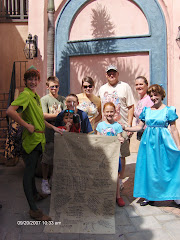I knew when I picked up this book that I would have some issues with some of the things this author wrote. What I didn't realize was how many issues I would have or how serious they would be. The only recommendation that I can honestly give about this book is: Do not waste your money or your time with it.
Nora Gallagher states in her introduction that when the editors of this series on ancient practices contacted her, she was ready with her answer: no. Obviously, she changed her mind. Just as obviously, she shouldn't have. I do not know why anyone would choose her to write a book about Communion. Her claim that she is uniquely qualified because she has served both the bread and the wine and has also received communion is ludicrous. I know of many in that position who would have done a much better job on this task.
My first problem with this book is the lack of clear direction. It is full of rambling stories and personal experiences from the author. Unfortunately, many have nothing to do with the topic at hand. She tells of the soup kitchen her church started, miracle mud in New Mexico and her brother's death.
Next, there is the lack of information about Communion. Her only point of reference seems to be the Episcopal Eucharist. There is no effort to discuss communion in different denominations. Her thought that communion itself actually stems from the feeding of the 5,000 rather than the Last Supper is totally unfounded.
Then, comes the problem with her theology. This is a woman who seems to have very little interest in the sacred (that which is devoted or dedicated to a diety) to begin with. She has no use for a Christ who is God incarnate. Her statement that the things Jesus did could not have been done without the disciples and the thought that he sought out the vulnerable so that he would stay vulnerable make that very clear. Her views on heaven are just that, her views. When Christ talks of the "kingdom of God" he is not talking of heaven, but rather an alternative society to the Roman empire. Where in the Bible does she get that idea?
My biggest concern is addressed in the title of the book. The Sacred Meal never once addresses the sacredness of this meal. The Lord's Supper is repeatedly refered to as a practice and never as a sacrement. Since a practice is a habitual performance and a sacrament is a visible sign of an inward grace, she seems to have totally missed the point of Communion. In her mind, there should be no barriers to anyone partaking of this very special meal shared by those who are members of God's family, in fact, even geese should be served. Where is the sacredness in that?
I received this book for free from booksneeze in exchange for this review.
Wednesday, March 2, 2011
Subscribe to:
Post Comments (Atom)

No comments:
Post a Comment